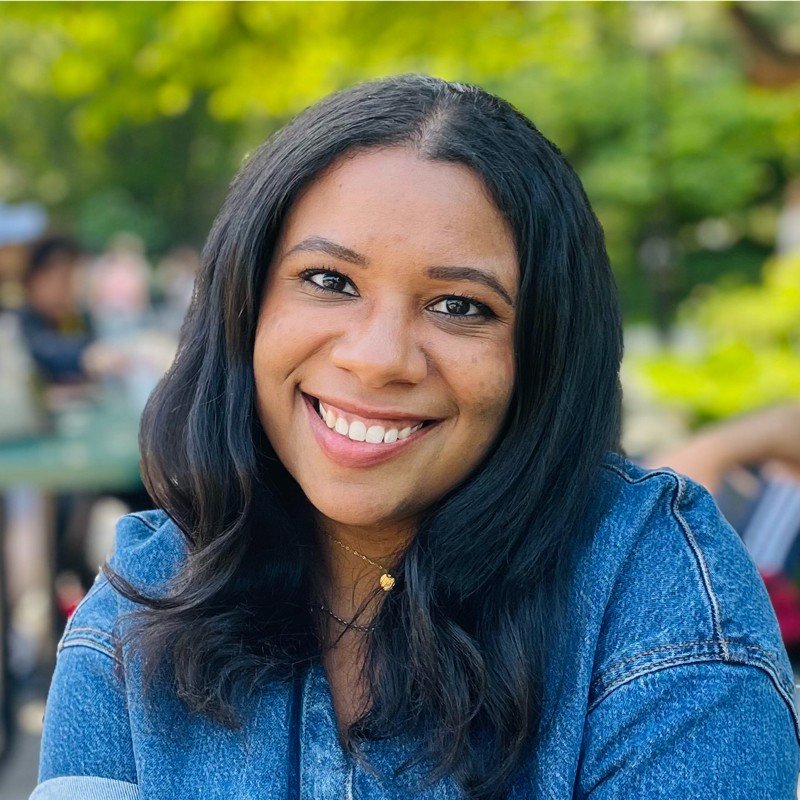The Best That You Can Do brims with life, sorrow, joy, and nostalgia. Winner of the 2023 Soft Skull-Kimbilio Publishing Prize, Amina Gautier’s short story collection brings readers across time to the present day with stops that include Chicago, Philadelphia, Lisbon, and the author’s own native Brooklyn. The stories are compact yet potent, exploring relationships, the connection and rights to one’s own heritage, and complexities embedded in one’s identity.
This collection, in many ways, feels like a master study on the richness of everyday lives. In “Rerun,” Black and Puerto Rican siblings are desperate for Boricua representation on their television screen. “We’ve got the Evans family – Florida, James, Michael, Thelma, and J.J. a.k.a. Kid Dy-no-mite – but we have to work to find the Boricuas,” Gautier writes. “We collect Puerto Rican actors the way other kids collect comics, valued all the more because they’re so rare.” In “Why Not?” a Black woman struggles with the low dating standards others expect her to accept, and the subsequent fallout after a date with an acquaintance. In “Housegirl,” an elderly woman grapples with loneliness in the space of time between visits from her personal home-care attendant.
Gautier spoke with Latinx in Publishing recently about the inspiration behind The Best That You Can Do (out now from Soft Skull Press), re-exploring Puerto Rican identity, and more.
This interview has been edited for clarity and brevity.
Amaris Castillo (AC): Congratulations on your stunning book, The Best That You Can Do. Your collection is lyrical and bursts with many themes, including identity, Blackness, and womanhood. I felt like I was right beside your characters as their stories unfolded. You were the inaugural winner of the Soft Skull-Kimbilio Publishing Prize, which is how The Best That You Can Do came to be in readers’ hands. What has winning this prize meant to you?
Amina Gautier (AG): I love winning prizes, first of all [Laughs]. Who doesn’t? The Kimbilio Prize, specifically, is important to me because Kimbilio means ‘safe haven,’ and it is an organization that nurtures and promotes the work of writers from all across the Black diaspora. So it’s a very important award.
Many of the awards for short story collections are typically attached to university presses, which tend to be small independent presses. Having this contest be attached to Soft Skull Press, which is distributed by Penguin Random House and is connected to Catapult, I think, makes the contest even more significant and more visible because it’s a larger press. It’s not one of the Big Six, but it is larger than an independent press which means that it has the power to get the work distributed widely.
But specifically as a writer of short fiction, it’s important to win contests because short fiction or short story collections tend to not be publicized or promoted as widely as novels are. So having a contest win attached to your book is an extra layer of publicity that will make people pay attention to it. All four of my short story collections have been published through contest wins.
AC: You center complexities within the Puerto Rican diaspora in the first section of your book. In “Buen Provecho,” siblings keep their desire to learn their father’s language hidden from their mother so as not to wound her. In “Quarter Rican,” a teenage girl visiting family on the island is made to feel not fully Puerto Rican by a relative. As a writer with Puerto Rican ancestry yourself, I know you have been writing about your community for years. For this collection in particular, though, what truths were you hoping to unearth in re-exploring Boricua identity?
AG: Some of the things that I’m always interested in promoting and exploring with Boricua identity and Latino identity is 1) Constantly reminding people that Puerto Ricans are not immigrants. People seem to keep forgetting that. When I’m writing about Latinx diaspora experiences, I’m interested in pushing the boundaries and reminding readers that there are so many different ways to be Latino or Hispanic.
Even with the narrative that is frequently pushed about languages – like, ‘OK, you know how to speak Spanish because you learned it at home, or because you learned it in school because of exposure.’ But there are plenty of other reasons why a person could decide to forgo speaking the language, or decide to be interested in it. At a certain point in your life, or development, or age, it can become a conscious choice.
In “Buen Provecho,” we have a mother who makes a decision not to learn Spanish because she associates with her father. And we have kids who are not exposed to it in the house because the mothers isn’t exposing it to them. But then they go see their Titi on the weekends, and they can get exposure in other ways and make the choice for themselves.
I want to remind people that that language is not only just a process of education and exposure, but has an emotional and psychological component to it as well… There’s so many different choices that people are making when they are choosing to adopt a language or adapt a language. And I want to remind readers that all of these possibilities are valid and valuable. That we are expansive.































